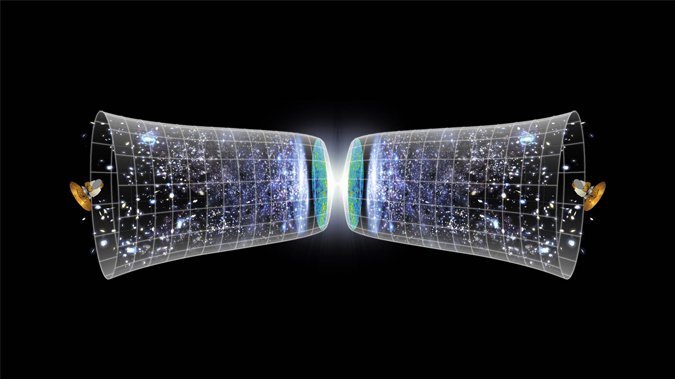
Everything posted by Moontanman
-
What are you listening to right now?
and this http://www.youtube.com/watch?v=di3CLFj6_Ag&list=PLA7D47214B99B0E0B
-
What are you listening to right now?
http://www.youtube.com/watch?v=f2aItuM1-J4
-
What are you listening to right now?
Another great song set to great imagery... This movie and this song literally changed my life.... How about some of that wild guitar you play dude?
-
What are you listening to right now?
Great song.... Absolutely beautiful imagery...
-
Their blood is blue because it is mixed with reptilian blood
When my people come and take complete control, you will be allowed to live because you helped us make everyone think David Icke was loony toons...
-
Their blood is blue because it is mixed with reptilian blood
maybe they are part octopus?
-
Their blood is blue because it is mixed with reptilian blood
yeah, but dead horses can't get away....
-
Their blood is blue because it is mixed with reptilian blood
Every time I see this stuff I think of how advanced the genetic engineering would have to be to actually cross a human from earth with a reptile from another planet, it also begs the question of how would an animal from another planet even be considered a reptile. We can't even make human petunia hybrids and we share 3.5 billion years of evolutionary history with petunias how could we hybridize with creatures we share no evolutionary history with? many of these people seem to think that all you need to do to cross a human blood line with another species is have sex with them and you have a viable cross breed and its fertile.... yeah, lets hear it for Centaurs.....
-
The Official "Introduce Yourself" Thread
Hello Catherine
-
Political Humor
Mitt Romney Haunted By Past Of Trying To Help Uninsured Sick People BELMONT, MA—Though Mitt Romney is considered to be a frontrunner for the 2012 Republican presidential nomination, the national spotlight has forced him to repeatedly confront a major skeleton in his political closet: that as governor of Massachusetts he once tried to help poor, uninsured sick people. Romney, who signed the state's 2006 health care reform act, has said he "deeply regrets" giving people in poor physical and mental health the opportunity to seek medical attention, admitting that helping very sick people get better remains a dark cloud hovering over his political career, and his biggest obstacle to becoming president of the United States of America. http://www.theonion.com/articles/mitt-romney-haunted-by-past-of-trying-to-help-unin,20097/
-
lighter than air ship using vacuum instead of gas
One of my favorite series of books raises this question in an unusual way, in one of the Books of swords by Saberhagen the protagonist conjures up a technology jinn. He wants to build a craft lighter than air and he instructs the magical creature to build a huge hollow sphere of metal and then commands it to remove the air, of course the balloon collapses as the air is removed. (wild books by the way, technology mixed with swords and sorcery gods demons and all sorts of odd stuff created by the ultimate dooms day weapon in a war between the USA and the Soviets) but the point is that if the hollow sphere is thin and light enough to weigh less than the air inside the sphere would collapse. Another book "Across Real time" by Verner Vinge uses the same concept somewhat more successfully but yes if the sphere is lighter than the air inside it will float if the air is removed and the walls are strong enough to prevent collapse.
-
The Official JOKES SECTION :)
The difference between the political right and the left One side says... I'll try to reduce piss robot spending by 25%! The other side says... I'll ask them not to aim for our mouths!
-
What would you change about the new SFN?
Ok, thankyou, I'll take the pos rep.
-
What would you change about the new SFN?
I think we should have more rep votes, way more pos rep votes in 24 hours, maybe unlimited, i often run out of pos rep votes in a day, but also more neg rep votes too, at least 6 in 24 hours.
-
Political Humor
I agree, here is mine, "Uh oh, do farts have lumps?"
-
What are you reading?
I just read "The Girl With the Dragon Tattoo" trilogy, great read... Im getting ready to read, "The Years Best Science Fiction" 27th Annual edition... but mean time I'm reading "Season of the Spellsong" by Alen Dean Foster... just to keep busy...
-
The Official "Introduce Yourself" Thread
Welcome Angelica, welcome Demonica, nothing like opposites!
-
What science books do you recommend?
WOW! How do you narrow it down? It's a Wonderful Life by Gould Rare Earth by Ward and Brownlee The Hot-Blooded Dinosaurs by Adrian J. Desmond Dynamic Aquaria "Building living Ecosystems" by Walter H. Adey and Karen Loveland Handbook of Unusual Natural Phenomena by Willian R. Corliss Life as we do not know it by Peter Ward The Deep Hot Biosphere by Gold The list goes on.... Oh and one fiction book I had the privilage of reading before it was released to the public... and I still have the pre-release copy! really great book, it is of course fiction but with great details of what is was really like in the Cretacious age! Cretaceous Dawn by L.M. Graziano and M.S. Graziano
-
What would you change about the new SFN?
You have changed this forum to the same format as the NANFA forum, i seldom go there because it's awkward, clumsy, and it locks up my computer even though that forum deals with one of my main areas of expertise. It's slightly more difficult to find new content on this format than the old was. Reputation was more than a bit more straight forward on the old format. I'm sure I'll get used to the changes evntually...
-
On tact
So the Earth was smaller during the time of the dinosaurs is the reason Africa and South America "fit" and the since the Earth was smaller dinosaurs could be bigger 6000 years ago before God made the planet bigger during Noah's flood to let the land come back up and the greater gravity killed off the now too big dinosaurs so Satan could deposit their bones under the ground to fool science? Makes perfect sense when you add faith and take away the idea the world is objective and consistent. Yes and they will have reason to laugh, unless of course you claim it was "God's Perfect Will" then they have to give you respect. Yes and so it begins, the idea of destroying science by commanding science respect religion more than it respects it's self. So far God has caused me zero problems in my life, But his fan club has proved to be sneaky, insidious, disingenuous, and quite often deadly.
-
On tact
Ok, I'll stay out of it, I do know some good old southern fried crow recipes if you need em It's not God I have a problem with, it's his fan club that pisses me off
-
On tact
The idea that science is based on belief is simply not true, while I might not personally be able to confirm all of science there are parts of it I can indeed confirm. Religious belief cannot be confirmed and no two religions, even denominations, or often even two people can agree on the correct belief. I have lots of friends who are pagans, many of the Abrahamic belief system would have them killed for their beliefs if given the power to do so. Why is their beliefs not given the same respect that Joe blow down the street who talks in tongues and wiggles on the floor while being possessed by the spirit of god does. Why does he have to be handled with kid gloves to keep from hurting his precious feelings? (actually this goes to the heart of it, so many different beliefs, who is right?) God, any ones God, from Thor to Jesus, or to the Moon Goddess to the Great Spirit or the flying spaghetti monster or unicorns or brownies or the alien spirits of Scientology are all just beliefs made up by some one who wanted to control someone else for his own reasons for the good of others. No way to confirm even the tiniest part of it. it has to be accepted on faith or belief. It is all nonsense in the realest form of the word, i generally give them the same respect they give anyone else who does not share their own beliefs, in other words NONE I can say the pagans are the most respectful of others beliefs and the least likely to proselytize that I've found but their beliefs are based one the same foundation, belief, no empirical tests can show any part of religion to be true. While I see no reason to stand on street corners holding signs that say religion is wrong and that it condemns us to the eternal damnation of global warming, religion on the other hand is somewhat less than respectful of my ideas on reality. We are all bombarded daily often many times a day on how religion is truth and how science is lies. The very basis of Abraham religions and their need to convert the world is disrespectful of anyone who disagrees with them, the fact they so often call each other down on the "truth" of each others claims and total lack of respect for each other should indeed show us they do not respect us and this lack of respect resonates through out society. I think the idea of a religious forum inside this forum that requires us to give them what they never give each other or us is bound to result in either good people being banned or science being lambasted continuously by believers who seek only to disrespect science and everything this forum is supposed to be about. if they need to discuss religion I suggest they go to a religious forum and discuss it. i have visited them, they are not exactly bastions of respect for each other much less anyone who even suggests science be given a thought much less respect. Oh yeah, religion and logic? Really? REALLY? REALLY?
-
On tact
Do we need to be just as nice to astrology as we do to religion? Can I say astrology is bullshit or that anyone who believes in astrology is not playing with a full deck? Astrology is no better than religion nor is it any worse.
-
On tact
I can see not calling a religious person an idiot or moron, but not being able to say that religion is nonsense is border line. Religion is nonsensical, most of the religious take any concessions to their point of view as weakness to be exploited. Technically religion is nonsense, just like some one who is not knowledgeable about something is technically ignorant. To say someone is ignorant is not insulting, to say they are stupid is how ever insulting. Ignorance can be cured, stupidity implies something that cannot be changed due to a real defect in the person or that the person refuses to learn. If the rules say I cannot say religion is nonsense i hope the religious will be held to the same standard at the very least.
-
coral growth vessels
I liked bubbling CO2 through arragonite.
